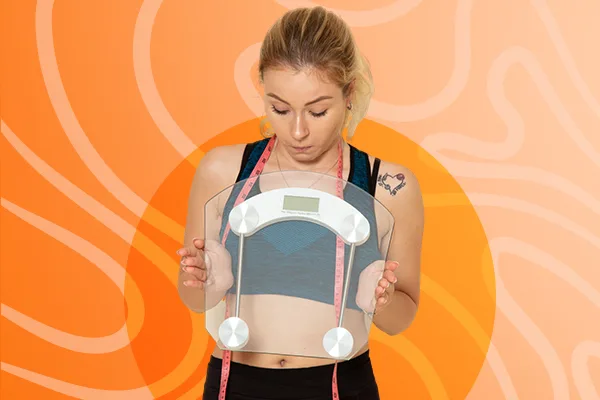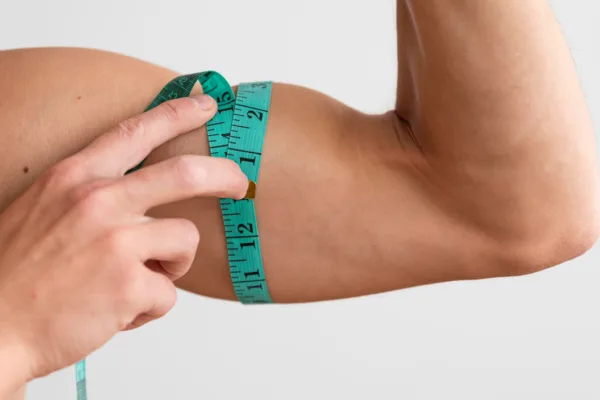What Are Fitness Calculators and How Can They Help You Reach Your Body Composition Goals?
Fitness calculators help you reach your health goals by tracking key metrics like BMI, BMR, TDEE, body fat percentage, lean mass, and target weight. These tools:
- Provide personalized data based on your body and activity level
- Help set realistic, composition-based goals—not just weight-based
- Allow you to adjust your fitness or nutrition plan based on progress
Use fitness calculators to stay informed, track results, and optimize your fitness journey.
In today’s health-conscious world, achieving your fitness goals requires not just effort, but precise tracking of progress. Whether you’re looking to lose weight, build muscle, or improve your overall body composition, fitness calculators can be invaluable tools to help you track your progress and achieve your desired target body weight. These calculators are designed to help you set and monitor body composition goals, making your fitness journey more focused and data-driven. In this article, we’ll explore various online tools that assist in tracking body composition, how they work, and how they can guide you to your ideal body weight.

The Importance of Tracking Body Composition
When it comes to fitness, focusing solely on weight can be misleading. Two individuals may weigh the same, but one might have more muscle mass and less fat than the other. That’s why body composition – the proportion of fat, muscle, water, and bone in your body – is a much more accurate indicator of health and fitness than weight alone. Fitness calculators help you track these metrics and give you a clearer understanding of how your body is changing over time.

What Are Fitness Calculators?
Fitness calculators are online tools designed to help individuals estimate and track various metrics related to their body composition. These calculators use inputs like weight, height, gender, age, and activity level to provide data that can help users make informed decisions about their health and fitness goals. From estimating your target body weight calculator to tracking body fat percentage and lean muscle mass, fitness calculators give you insights that can be used to adjust your fitness plan for better results.
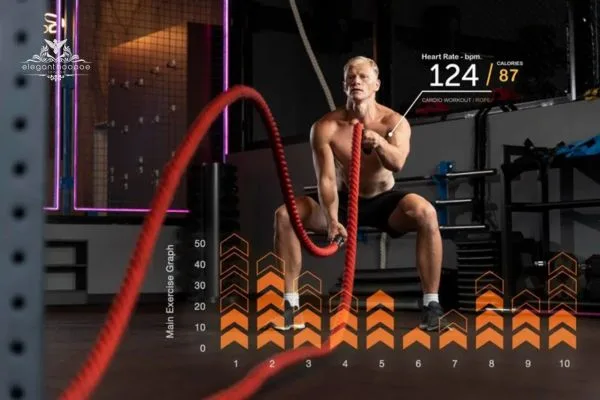
Types of Fitness Calculators You Should Know About
Fitness calculators come in many forms, each focused on a specific aspect of your body composition. These tools allow you to gather data on your physical status and use it to create personalized fitness goals. Let’s take a look at some of the most popular fitness calculators that can help you along the way.
Body Mass Index (BMI) Calculator
The BMI calculator is one of the most common tools used to assess overall body composition. It measures the ratio of your weight to your height and places you into categories such as underweight, normal weight, overweight, or obese. However, BMI has its limitations, as it doesn’t distinguish between muscle and fat mass. As a result, individuals with a lot of muscle mass might be classified as overweight or obese despite being in excellent shape.
How to Use:
- Input your weight and height into the BMI calculator.
- The calculator will provide a result that categorizes your body type and gives an estimate of health risks based on the BMI classification.
Limitations:
While BMI is a good starting point, it doesn’t give a complete picture of your body composition. It is essential to use additional calculators, like body fat percentage, for a more accurate assessment.
Weight
Height
Age

Basal Metabolic Rate (BMR) Calculator
Your Basal Metabolic Rate (BMR) is the number of calories your body needs at rest to maintain vital functions such as breathing, digestion, and circulation. Knowing your BMR can help you understand how many calories you should be consuming to maintain, lose, or gain weight.
How to Use:
- Input your gender, age, height, and weight.
- The calculator will provide your BMR, which indicates how many calories your body needs to function at rest.
Why It Matters: Understanding your BMR is crucial for setting accurate calorie goals. For weight loss, you’ll need to consume fewer calories than your BMR to create a calorie deficit. Conversely, for muscle gain, you’ll want to eat more than your BMR to support growth.
Total Daily Energy Expenditure (TDEE) Calculator
TDEE represents the total number of calories you burn in a day, taking into account your physical activity levels. While BMR tells you how many calories you burn at rest, TDEE factors in all of your daily activities, from working out to walking and even the calories burned while at rest.
How to Use:
- After calculating your BMR, use the TDEE calculator to factor in your activity level, ranging from sedentary to very active.
- The calculator will estimate the total calories burned throughout the day, which can be used to adjust your diet for your fitness goals.
Why It Matters: TDEE is especially useful for determining how much you should eat depending on your fitness objectives. If you’re looking to lose fat, you’ll need to create a calorie deficit based on your TDEE. If you’re aiming for muscle gain, a calorie surplus is required.
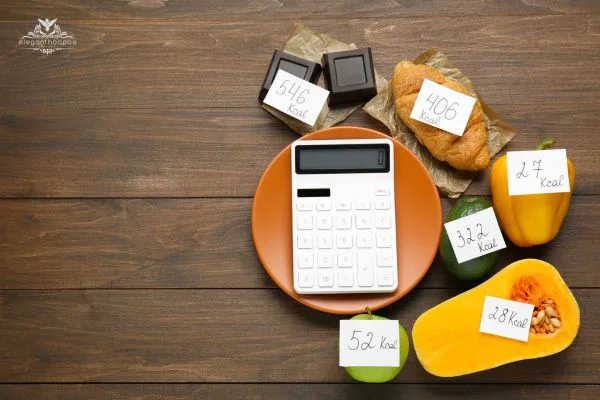
Body Fat Percentage Calculator
Body fat percentage is a more accurate metric than BMI for understanding your body composition. This calculator estimates the proportion of your weight that is made up of fat tissue. Monitoring body fat percentage is essential for those looking to lose fat while maintaining or building muscle.
How to Use:
- Use a body fat percentage calculator that requires inputs such as waist, hip, and neck measurements, or use an impedance scale that can provide body fat readings.
- The calculator will provide an estimate of your body fat percentage, which can help you track fat loss and muscle development.
Why It Matters: Measuring body fat percentage helps you understand your body composition more accurately than BMI. For example, a person with a high muscle mass might have a higher weight, but a low body fat percentage. Monitoring this metric helps track true progress toward fitness goals.

Target Body Weight Calculator
A target body weight calculator allows you to set a realistic weight goal based on your desired body fat percentage. This tool is particularly beneficial for those focused on improving body composition rather than just reducing weight. The calculator estimates your target weight that aligns with your goals for fat reduction and lean mass development.
How to Use:
- Input your current weight and body fat percentage, as well as your target body fat percentage.
- The calculator will estimate your target body weight, which helps you reach your desired body composition.
Why It Matters: By focusing on body fat percentage and lean mass, rather than just weight, you can set more accurate and achievable fitness goals. The target body weight calculator helps ensure that you’re aiming for a body weight that reflects a healthy balance of fat and muscle.
Lean Body Mass Calculator
Lean body mass refers to everything in your body that isn’t fat, including muscle mass, bones, and organs. Tracking your lean body mass can be especially useful for those aiming to gain muscle or improve their fitness levels. By knowing your lean mass, you can monitor changes in muscle gain over time.
How to Use:
- Input your weight and body fat percentage into the lean body mass calculator.
- The calculator will estimate your lean body mass, helping you track your muscle growth.
Why It Matters: For individuals focused on muscle building, monitoring lean body mass is crucial. While weight alone might not tell the full story, changes in lean body mass give a clearer picture of progress.
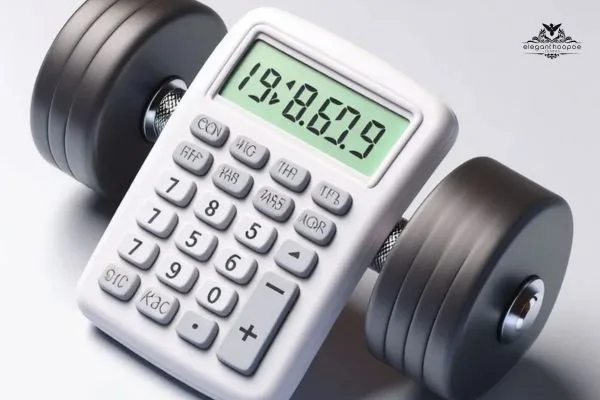
How Fitness Calculators Help Set and Track Body Composition Goals
Set Specific Goals with Accurate Data
Fitness calculators allow you to set measurable, achievable goals. By using the target body weight calculator, you can determine a weight that is optimal for your body composition goals. These calculators help set realistic expectations and provide a roadmap for achieving your ideal body fat percentage, lean mass, and overall health.
Track Your Progress Over Time with a Fitness Calculator
As you move forward with your fitness plan, regularly using fitness calculators helps track your progress and make adjustments as needed. Whether it’s body fat percentage or muscle gain, these tools give you objective data that shows how close you are to achieving your target body weight.
Adjust Your Plan Based on Feedback
One of the key benefits of using fitness calculators is the ability to adjust your plan based on real-time data. If you’re not seeing the results you expect, the data from these calculators can help you understand why and offer insights on what to change—whether it’s diet, exercise, or lifestyle habits.

Conclusion: Fitness Calculators
Achieving your fitness goals is a journey, and the tools you use to track your progress are crucial to that success. Fitness calculators give you the data and insights you need to make informed decisions about your body composition goals. By using these online tools, you can more effectively track your progress, adjust your plans, and achieve your target body weight. Whether you’re trying to lose fat, build muscle, or maintain a healthy body composition, these calculators help provide clarity and precision in your journey.
References
Calculator.net Body Fat Calculator





